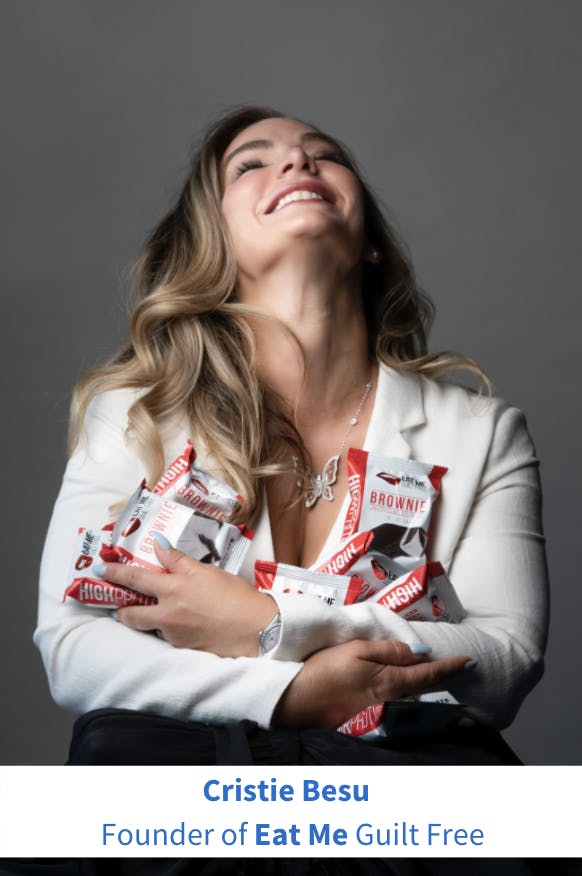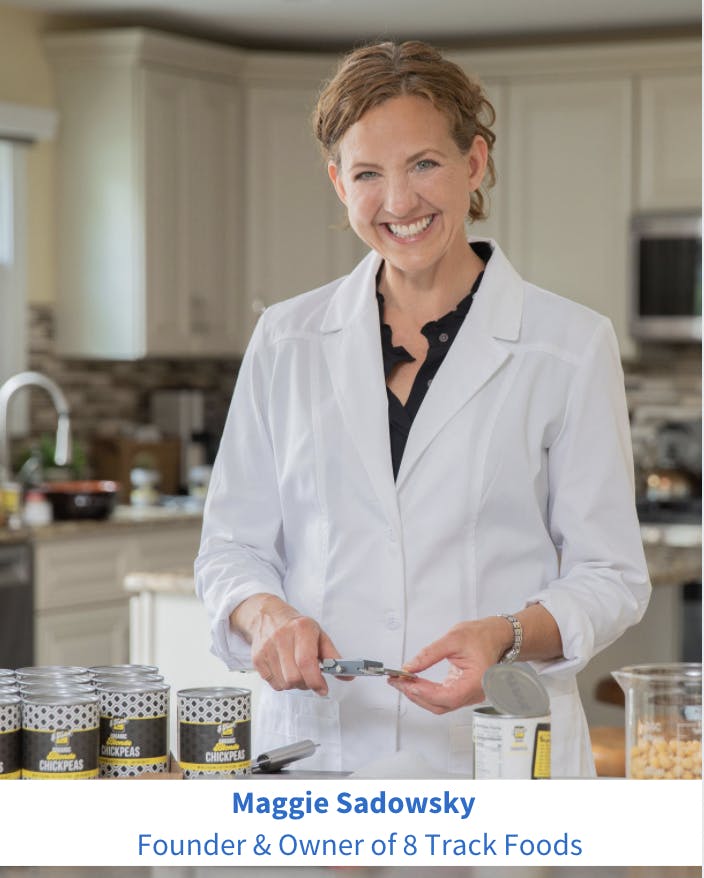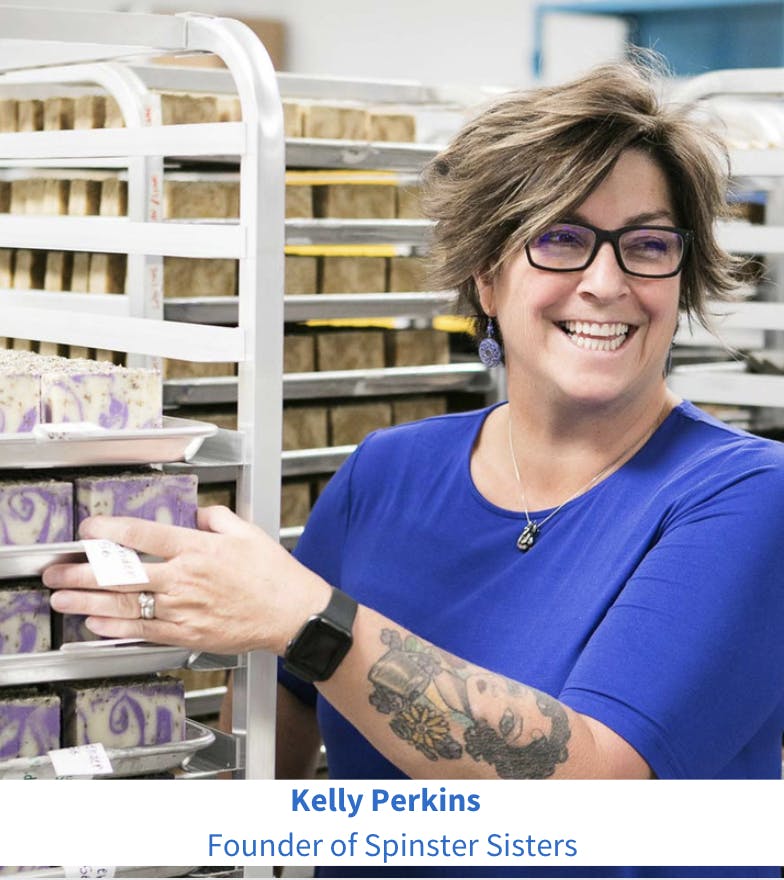Pop quiz: What event took place in 1978 in Santa Rosa, California, that sparked a now annual month-long celebration?
If you answered “the first Women’s History Week” celebration—which inspired communities across the country and eventually led to the designation of March as Women’s History Month—you are correct! Gold star!
We all know though, that women have been making history longer than it’s been officially celebrated. And today, more than ever, women are breaking barriers and making bigger strides in everything they do, from launching and running businesses to science, politics, arts, and beyond. Women own approximately 13 million businesses in the U.S., and that number doesn’t look to be slowing down any time soon.
When we zero in on the contributions of women to the consumer packaged goods (CPG) industry, we see a long history of women innovating, adapting, and making their mark on a traditionally male-dominated industry. Some of the most well-known and established brands in CPG were founded by women, like Pepperidge Farm, POM Wonderful, Liquid Paper, and, if legend is to be believed, Kikkoman.
Women in CPG are leading the way
In today’s CPG industry, women-owned businesses are coming into their own, thanks in large part to the supplier diversity movement within retail. Consumers today want brands that meet their needs and match their values, and retailers are eager to offer products that resonate with consumers. Not only can diversifying their suppliers impact a retailer’s bottom line—in a good way, to the tune of an estimated $3.6 million per every $1 million in procurement costs—but it also fosters a better relationship with consumers, advances job creation, promotes inclusivity and innovation, and drives competition. Big-box retailer Target, for example, partners with several organizations to promote supplier diversity, including the Women’s Business Enterprise National Council (WBENC). As the supplier diversity movement continues to gain momentum, retailers are turning to those brands that have achieved certification for a variety of attributes, like certified Women-Owned Small Business, or Certified Women Business Enterprise.

We’ve seen a multitude of women-owned brands gain traction as buyers seek out innovative new brands owned and operated by women. Eat Me Guilt Free, a women business enterprise, that launched a product line of brownies that are both good tasting and good for you, connected with retailer Vitamin Shoppe after leveraging social media platforms to grow their follower base, increase sales, and boost brand awareness. Their authenticity—and, let’s face it, tasty product—struck a note with consumers, and as Founder, Cristie Besu noted in a recent interview, “We make sure our customers feel like they’re part of our journey by showing there is a real person behind the brand and capturing all of our behind-the-scenes moments. We’ve built a community, a cult-like following, and we’re proud to have such a strong connection with our customers.”
Before the COVID-19 pandemic shut down much of the country, including Maggie Sadowsky, Founder and Owner of 8 Track Foods and women business enterprise, had planned on launching her new wave of canned beans at the Natural Product Expo West show. When the show was canceled, Sadowsky pivoted and moved her strategy online—which proved the right move for the brand. They needed to find a way for retailers to discover their products, and RangeMe would help them get there. Their products were exactly what consumers wanted at a time when canned goods were in high demand and short supply, as consumers bought in bulk to limit grocery store trips.

“It turned out that we hit the mark on when to launch and we had the perfect product that everyone desired and needed,” Sadowsky noted. Soon after their launch, Sadowsky received messages from major players in grocery retail, including Albertsons, Walmart, and Whole Foods Market on RangeMe.
The COVID-19 pandemic also impacted product innovation—in a positive way—for Spinster Sisters, a WBENC-certified company that offers natural skincare products. The pandemic provided a new opportunity to introduce gentle hand sanitizer and face mask sprays to help keep their consumers healthy and engaged with the brand. Paired with their “disruptive branding,” as Founder Kelly Perkins describes it, the brand has created a cult-like following that grabbed the attention of retailers like HEB, Whole Foods Market, King Soopers, and more.

These are just a few prime examples of women-owned businesses that are making strides within CPG retail today.
Women in CPG Past, Present, and Future
In the past year, the demand for women-owned and operated brands has seemingly skyrocketed. Retailer searches on RangeMe for brands with the following women-owned certifications increased dramatically since 2019: WEBN, WOSB, WBE, confirming that the trend doesn’t seem to be slowing down. RangeMe is also helping drive initiatives that promote women-owned businesses by highlighting women-owned brands—with women-owned certifications, naturally—in special collections for retail buyers to view.
“We feel strongly that working with partners that share our core values is important and through RangeMe, we have been able to connect with those types of like-minded business partners,” says Spinster Sisters’ Perkins.
The past year has prompted and accelerated a sea of change within CPG retail. Women-owned businesses have benefited from these changes, and as we move forward as an industry, expect the presence of women-owned businesses on store shelves to continue to increase in popularity among retail buyers and consumers.
Are you a retail buyer? Check out Spinster Sisters, Eat Me Guilt Free, and 8 Track Foods on RangeMe.

